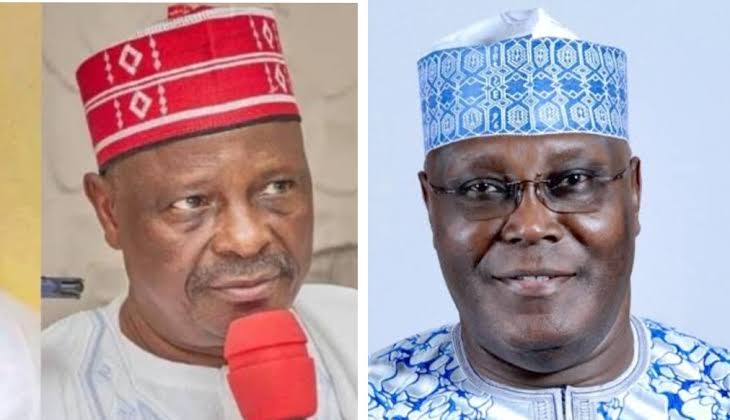The death of former President Muhammadu Buhari on July 13, 2025, has left more than just a personal loss it’s created a deep political vacuum in Northern Nigeria.
His passing, after a quiet battle with illness in London, sent shockwaves across the region and the country at large.
Two days later, Buhari’s hometown of Daura became a sea of mourners. From everyday villagers to high-ranking politicians, thousands came to pay their last respects.
President Bola Tinubu stood among them, alongside traditional rulers and powerful allies, paying homage to a man who had shaped the political landscape of the North for more than 20 years.
But as tributes faded and flags returned to full mast, an uncomfortable question began to rise: Who steps into the political space Buhari left behind?
Two Titans, One Crown
Right now, the spotlight shines on two men Atiku Abubakar and Rabiu Musa Kwankwaso.
Both command influence. Both carry ambition. But only one could emerge as the North’s next political compass.
Atiku, Nigeria’s former Vice President and serial presidential contender, brings to the table a national network, vast resources, and decades of political experience.
Many Northern leaders view him as a natural heir someone who has paid his dues and weathered storms, often clashing with Buhari’s dominance but surviving with his political machinery intact.
“Now that Buhari is no longer here,” said Jafar Sani Bello, a PDP gubernatorial aspirant, “Atiku might finally become the figurehead he’s always aspired to be.”
Supporters point to Atiku’s resilience. Though often criticized as elitist, he remains one of the few politicians in the region with national reach and cross-regional alliances.
The Kwankwaso Factor
Yet, Kwankwaso refuses to fade into the background. The former Kano governor has a different kind of power grassroots energy.
His Kwankwasiyya movement pulses through Northern streets with youth-driven loyalty, particularly in Kano and nearby states.
At a recent forum in Kano, Kwankwaso didn’t hold back. He blasted the federal government for “abandoning” the North and letting its infrastructure rot.
“I drove from Abuja to Kano it was a nightmare,” he told a restless crowd. “While the South gets all the attention, our people suffer in silence.”
That kind of straight talk, his followers say, is exactly what the North needs: a bold, fearless defender who speaks for the masses, not the elite.
Still, critics warn that Kwankwaso’s influence is too narrow. In 2023, he won big in Kano but failed to make major inroads across other Northern states.
His fiery style and solo approach have also drawn accusations of being too controlling or lacking a national vision.
Tinubu’s Shadow and a Possible Twist
In the background of all this, President Tinubu is watching closely. He has met Kwankwaso multiple times, sparking whispers of a political deal.
Some believe Tinubu may offer Kwankwaso a spot in the ruling APC or even float him as a potential running mate for 2027.
Kwankwaso’s team has dismissed the rumours, but few doubt Tinubu’s political savvy. If he pulls Kwankwaso into his camp, it could dramatically shift the region’s power dynamics and sideline Atiku for good.
Conclusion
Buhari’s reign wasn’t perfect, but for many Northerners, he symbolized identity, hope, and stability. Now, the North must choose a new political path and that decision carries national consequences.
Atiku has reach. Kwankwaso has fire. But both need to prove they can unite a region divided by poverty, insecurity, and growing frustration.
For now, the North stands at a crossroads. The cult of Buhari is gone. The next leader must offer more than nostalgia—they must offer solutions.



